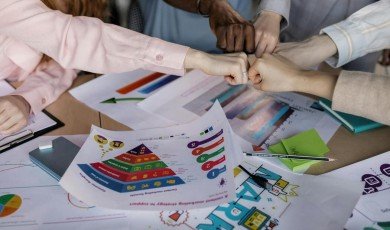
French Translation Services for Case Law: Maintaining Legal Precision Across Languages
Introduction: Empowering Participation and Justice with Language
In a world characterized by increasing globalization and interconnectivity, the flow of information and understanding across linguistic barriers has never been more crucial—especially in the realm of law. For societies to thrive, engage, and exercise true participation, there must be equitable access to legal information. Case law, with its nuanced language and profound impact on society, must be accessible and comprehensible to everyone, regardless of language. This is where French translation services play a pivotal role in bridging the gap between people and the power structures that govern them. Through expert translation, organizations like the Society for Participation, Engagement, Action and Knowledge Sharing (SPEAKS) are fostering a more inclusive and engaged society, ensuring justice does not get lost in translation.
Enabling Legal Participation Through Accurate French Translation
Case Law: Foundation of Rights and Social Change
Case law forms the backbone of many legal systems. It codifies judicial decisions, sets legal precedents, and shapes the interpretation of statutory law. For individuals and organizations seeking engagement in legal reforms, policy advocacy, or community action, access to accurate and reliable translations of case law is indispensable.
Unfortunately, the complexity of legal language presents a substantial barrier to those outside the original language domain. In jurisdictions where French is the primary or official language—such as France, parts of Canada, Switzerland, and many African nations—precise translation ensures that legal reasoning and precedents are understandable and applicable across borders. French translation services specialize in navigating this intricate legal landscape, delivering clarity and certainty that empowers justice seekers and community advocates alike.
Bridging the Gap: Engagement and Empowerment
The fundamental mission of SPEAKS—bridging the gap between people and power—finds resonance in the translation of legal documents. When citizens and advocacy groups have access to legal materials in their native or preferred language, they are equipped to participate meaningfully in societal debates, assert their rights, and demand accountability. In this context, translation services become agents of democratization and societal empowerment.
Translations that lack accuracy or context risk distorting meaning and undermining the foundation of trust in legal systems. Legally precise translations are not just about words—they are about intent, interpretation, and procedural nuance, all of which are essential for active participation in legal and civic processes.
Ensuring Legal Precision: Standards and Regulations
Legal documents, especially case law, contain terminology and syntax that are distinct from ordinary language. Errors in translation can result in misinterpretation, legal uncertainty, and even miscarriages of justice. International best practices dictate that specialized translators—often with legal training—are essential in this field.
For organizations and individuals seeking high-quality French translation services, adherence to recognized industry standards is non-negotiable. The EN 15038 standard specifically governs translation service provision, ensuring rigorous quality management, translator competency, and reliability. Translation agencies operating under such standards provide much-needed assurance that complex legal information is rendered faithfully into French.
Translation: Catalyst for Collective Knowledge and Action
At its core, legal translation is about more than words—it is about making knowledge actionable. When grassroots organizations, activists, or local community leaders have access to legal precedents and judicial decisions in accessible language, they can galvanize support, educate communities, and advocate for meaningful change. The power of engagement lies in understanding, and understanding is built on accurate translation.
Moreover, in regulatory environments where cross-border partnerships are essential—such as international human rights campaigns or transnational environmental litigation—French translation services help unify disparate stakeholders. By equipping diverse actors with the same legal knowledge, translation services cultivate a common ground for dialogue, negotiation, and coordinated action.
Legal Regulations & the Engagement Imperative
The importance of legal translation is underscored by the various regulations that govern multilingual publishing and access to justice. Many governments have recognized the necessity of providing official legal documents in multiple languages, notably in Canada and the European Union. Failure to provide accurate translations can have significant legal and reputational repercussions, as well as diminishing public trust.
At the same time, the right to access legal information in a language one understands is increasingly being interpreted as a fundamental human right. This right supports greater civic engagement, allowing individuals to make informed decisions, hold authorities accountable, and advocate for equitable policies. High-quality French translation services are thus not just tools of compliance, but instruments of empowerment.
The Role of Technology and Human Expertise
While advances in machine translation have expanded global dialogue, legal translation remains a domain where human expertise is indispensable. The subtleties of legal arguments, the weight of precedent, and the fine balance between literal and contextual meanings require seasoned professionals who understand both legal and linguistic nuance.
Technology can support the process through terminology management and consistency checks, but at the core, qualified legal translators bring assurance of both technical accuracy and cultural relevance. Choosing certified, experienced providers is essential for anyone relying on French translation services for case law.
Case Example: French Translation Services in Practice
Imagine a community advocacy group in West Africa seeking to challenge a precedent from the French legal system that affects environmental rights in their country. A precise translation of the relevant case law enables the group to strategize, engage legal experts, and communicate their concerns effectively with stakeholders—locally and internationally. At the intersection of language, law, and civic action, French translation services empower local voices to be heard on the global stage.
Conclusion: Bridging the Divide with Precision and Participation
The mission of SPEAKS—to bridge the gap between people and power—finds profound expression in the domain of legal translation. Accurate, reliable French translation services for case law are indispensable tools for advancing legal engagement, ensuring regulatory compliance, and building inclusive, participatory societies. By adhering to global standards such as EN 15038 and leveraging both technological and human expertise, these services maintain the integrity and nuance of legal information across linguistic boundaries.
In an era where engagement, knowledge sharing, and equitable action are foundational for social progress, legal translation is not just a technical necessity—it is a vital lever for participation and justice. Whether advocating for community rights, fostering transnational collaboration, or simply ensuring that no voice goes unheard due to language barriers, the commitment to precision in legal translation sustains the vision of an empowered, informed, and engaged society.
To learn more about professional solutions, see this comprehensive resource on French translation services and discover how specialized support can bolster your legal and civic impact. If you are interested in the quality frameworks that guide these services, explore the EN 15038 standard as a benchmark for excellence in translation.
Let us continue to bridge gaps, share knowledge, and build more participatory societies—one translated word at a time.








